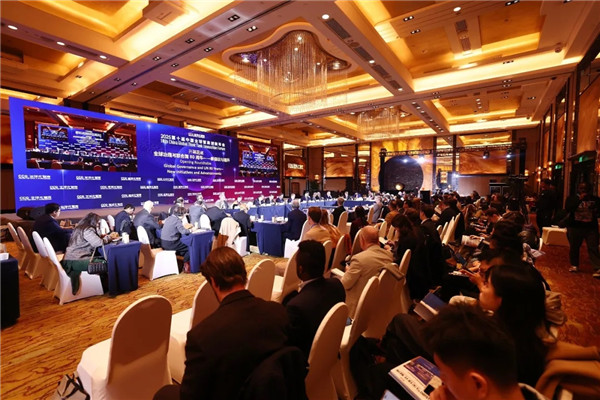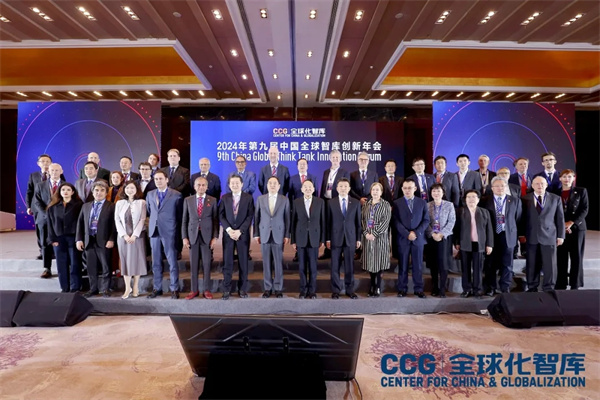2019 High-level Seminar on World-Leading Think Tanks
The 2019 High-level Seminar on World-Leading Think Tanks took place on May 29th in Beijing, convening experts from leading Chinese and international think tanks. Hosted by Center for China and Globalization (CCG), University of Pennsylvania’s Think Tanks and Civil Societies Program (TTSCP) and the Penn Wharton China Center (PWCC), this seminar facilitated intellectual and experiential exchange and provided a platform to share observations on the innovative development of Chinese think tanks.
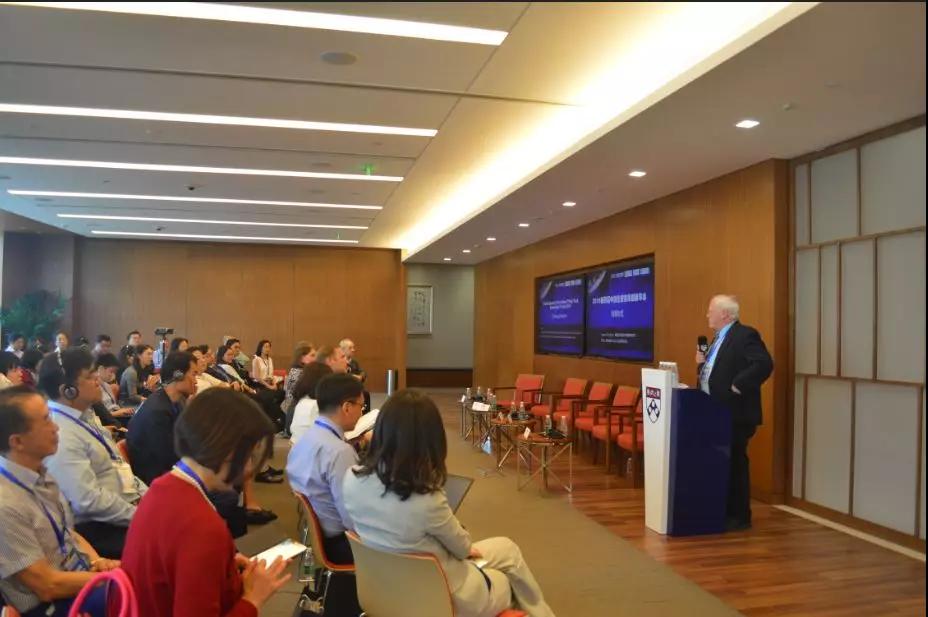
This is the fourth consecutive year the High-Level Seminar on World-Leading Think Tanks has been held. Organized to occur the following day to the 2019 4th Annual China Global Think Tank Innovation Forum, this seminar allowed a more intimate exchange between experts and participants. Opened by CCG secretary general, Dr. Mabel Miao and University of Pennsylvania’s TTCSP director James G. McGann, the seminar welcomed more than 80 participants and experts.
The importance of innovation in development across all sectors has become increasingly evident as global competition has intensified. For think tanks, the impact of technology, the need for talent cultivation, and expanding global-reach are at the forefront of their innovative development. How to engage a global audience in think tank research activities and promote greater public interest in think tanks’ work is also a key issue facing global think tanks today.
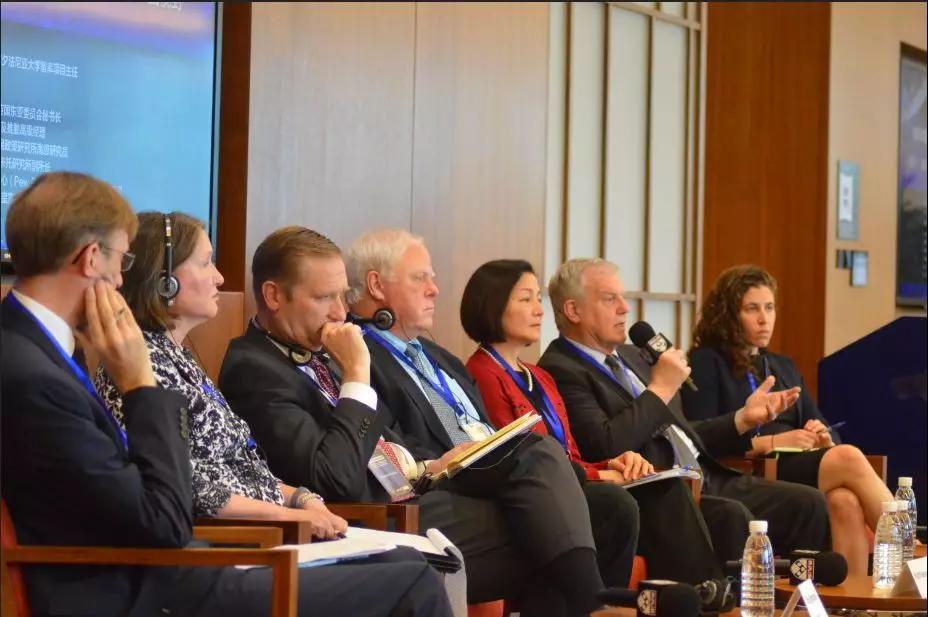
This seminar saw leading global think tank experts share their own experience of innovation in the sector, drawing on examples from their own institutions as well as offering suggestions for the development of Chinese think tanks and think tank globalization.
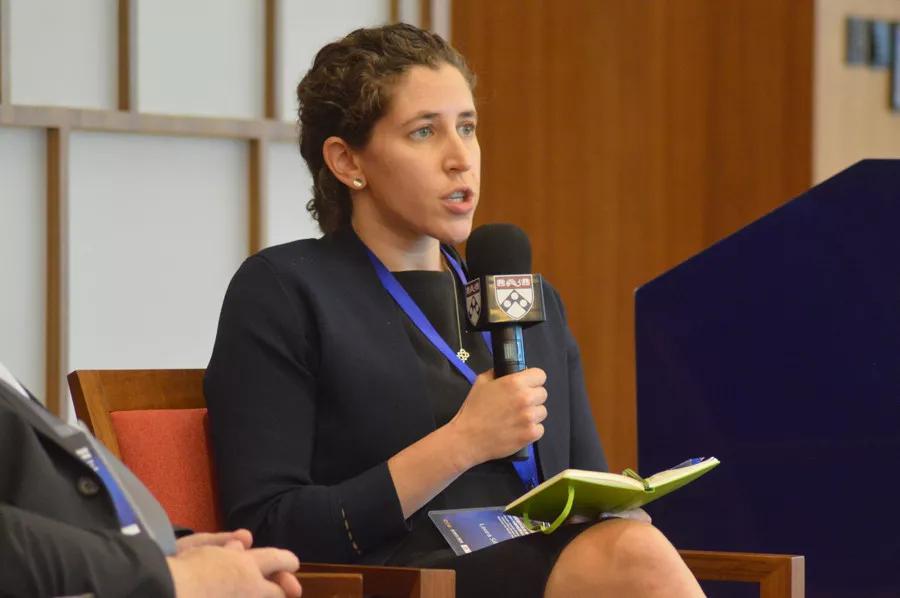
Focusing on innovating and presenting research in a digestible way for a global audience, senior researcher Dr. Laura Silver from the Pew Research Center introduced Pew’s “Global Attitude Survey”. She presented Pew Research Institute’s topics and research methods to the audience, as well as detailing challenges the institute faces when conducting research. Dr. Silver emphasized the importance of adhering to the scientific method and remaining neutral. She stated the central purpose of the institute is to gather public opinion on political economic and social issues and deliver them in the most accurate and impartial way.
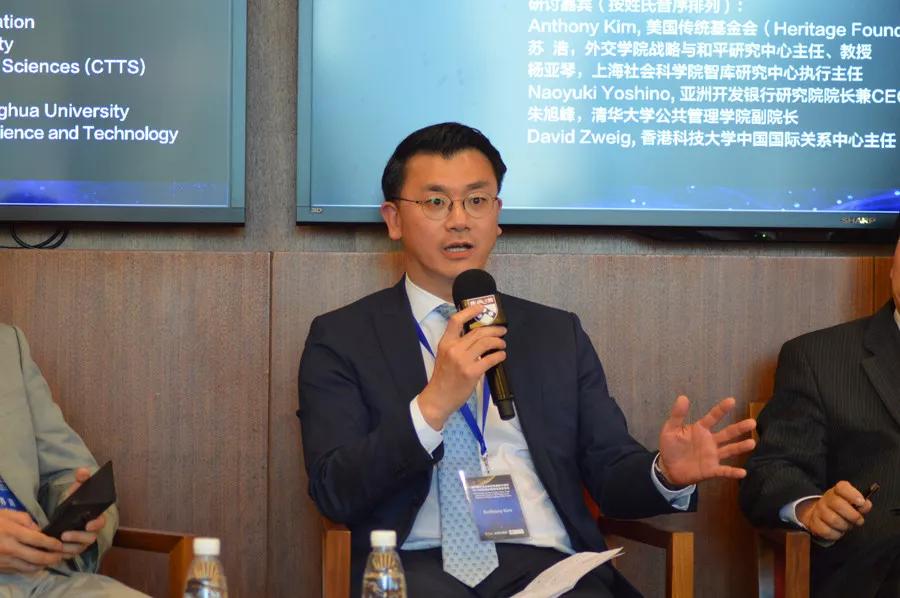
To demonstrate one of the key research activities of the Heritage Institute, editor of the Index of Economic Freedom and research director at Heritage Foundation, Anthony Kim, gave the audience a rundown of the foundation’s economic freedom index. Dr. Kim summarized the findings of the index, saying despite recent challenges to the global free market, global economic growth has remained steady over the past 25 years, especially in developing countries. Speaking on his approach to compiling research, he stressed the need not only for professional academic skills, but also a willingness to learn and an innovative capability for data processing to produce globally influential research.
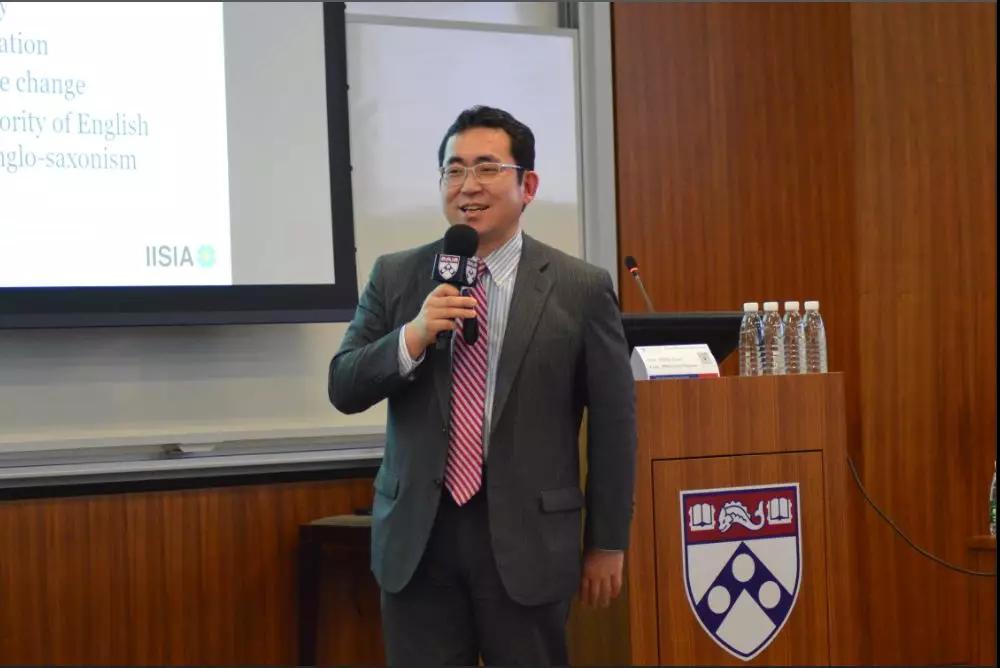
In a seminar session on best practice for think tank globalization, Takeo Harada, CEO of Institute for International Strategy and Information Analysis (IISIA) shared his perspective. Dr. Harada put forward IISIA’s global experience and practice as an example for how other think tanks can look to internationalize. He forecasted that developing trends show that think tanks should focus more on areas such as the environment and health care, more closely related to the existence and development of humankind. He stated a key issue in promoting think tanks’ influence on international affairs is to reform the traditional research procedure. He advised think tankers in the audience to ensure think tanks keep up with the pace of the times and broaden their research perspective.
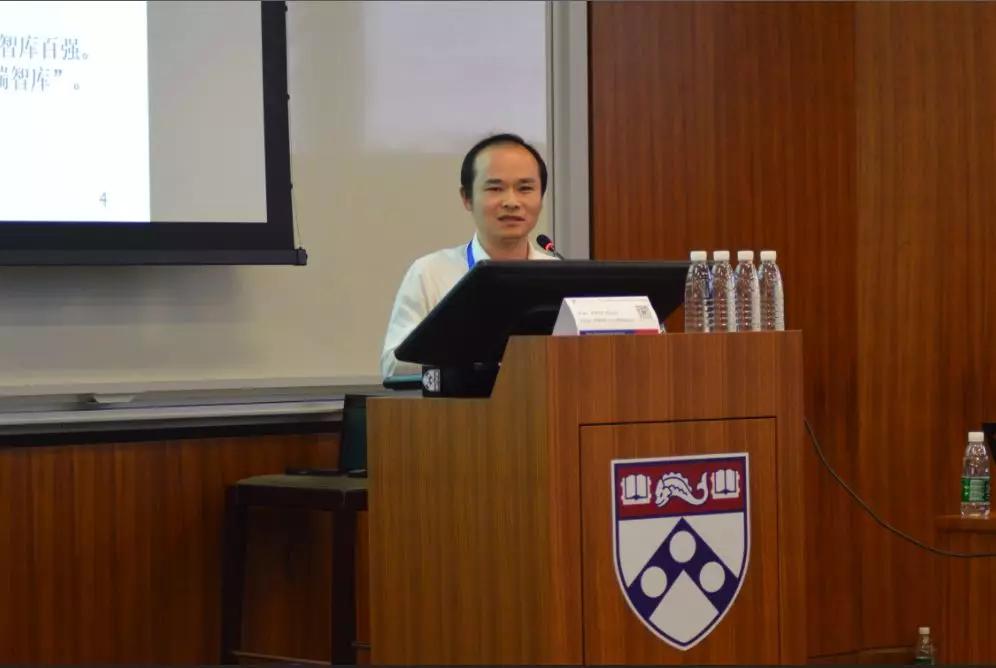
The recent explosion in the number of think tanks in China has seen many universities establishing think tank-style research organizations. To give insight into his experience, Nie Huihua, deputy executive dean of the National Academy of Development and Strategy (NADS) at Renmin University of China, spoke to attendees on the practice of university-based NADS. Dr. Nie discussed the issue of the transformation of scholarly research into think tank products, detailing four main strategies. He also spoke about the importance of scholars’ attention to policy research, and elaborated on the distinction between scholarly and policy research.
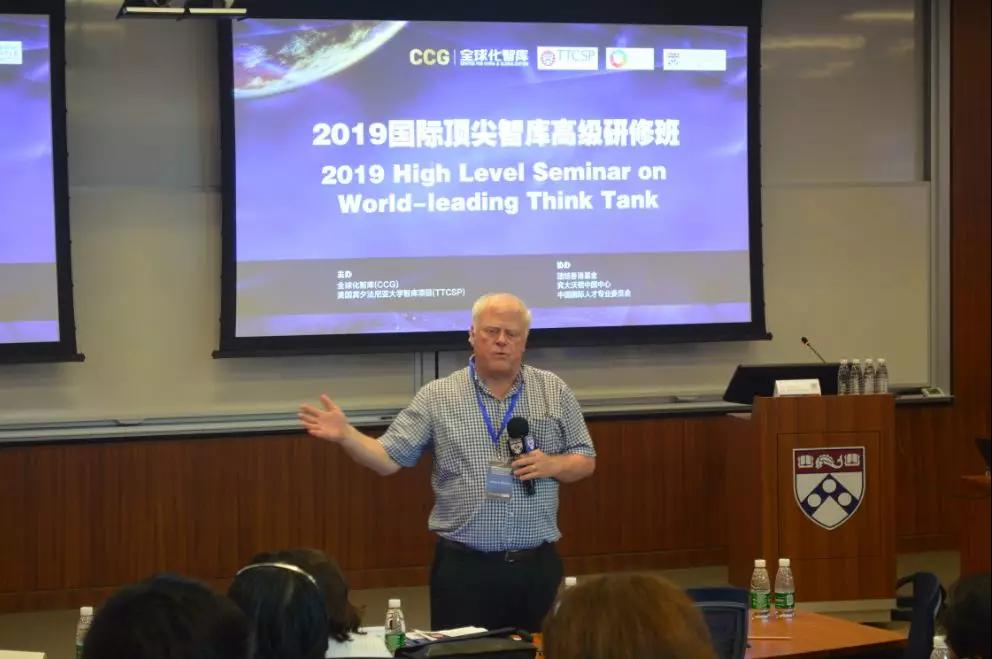
Organizer of this seminar and director of the University of Pennsylvania’s TTCSP, James G. McGann shared his thoughts on think tank management styles and competition in the think tank sector. Dr. McGann stated, for a globalized think tank, challenges and opportunities will present themselves as the community develops. Today as we witness the golden age for Chinese Think tank development, Mr. McGann expressed concern on the current situation for independent think tanks. He urged think tanks to consider their purpose and values as research and policy advisory bodies. He underlined that, to overcome operational inertia, think tanks need to prove their value to the public, by helping citizens better understand public policy and conducting constructive research. He also proposed three must-have qualities for think thanks: a comprehensive data base, scholarly research skills, and a profound understanding of social science. He concluded Chinese think tanks should position themselves, paying attention to intra-communication, and look to better serve China’s interest through national and regional cooperation.
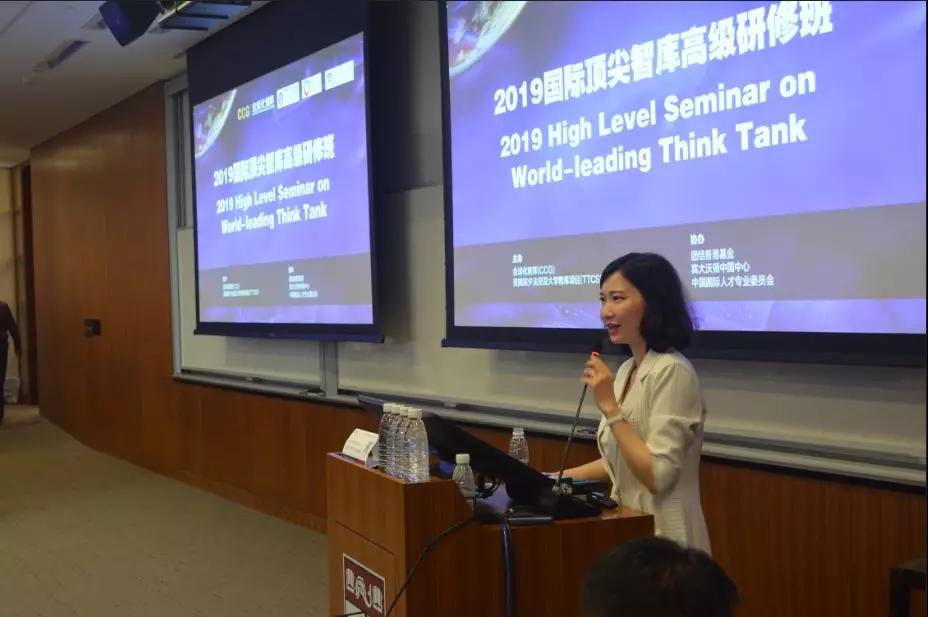
Rounding up the day’s seminar, CCG secretary general, Dr. Mabel Miao stated the purpose of this forum is to provide Chinese governmental think tanks, university research organizations, and independent think tanks a platform to share ideas. Through exchanges with others and global experts, this will encourage and facilitate international and national communication and cooperation between researchers. Dr. Miao expressed her hope that attendances value the experience this seminar has offered and look to act upon the advice and suggestions put forward at this forum.
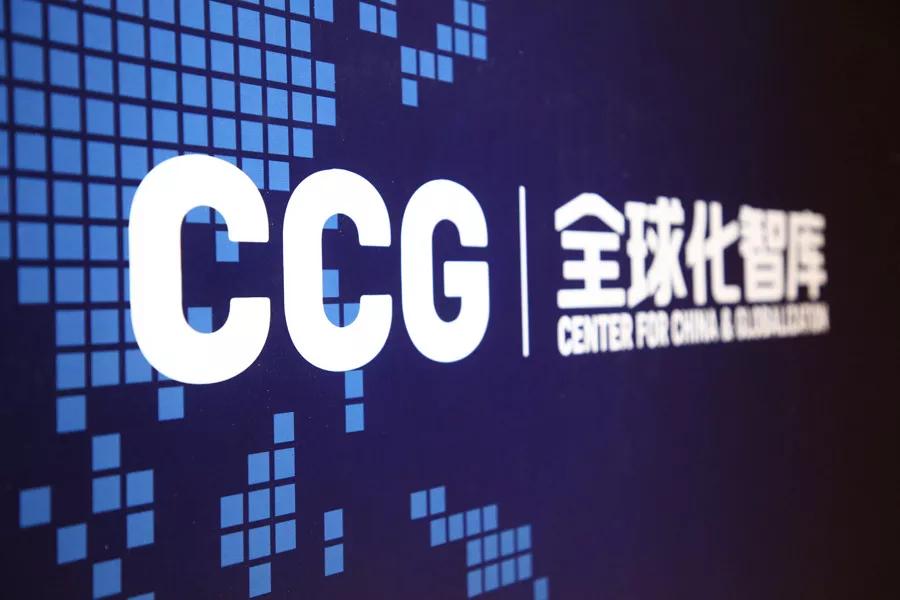
CCG actively supports the development of the Chinese think tank community and seeks to further promote the global reach of Chinese think tanks. As a globally-focused organization, CCG leads the way for Chinese think tanks in international cooperation with global research and policy-making organizations, regularly holding joint events in China and overseas, and hosting international visitors at its Beijing Headquarters.
